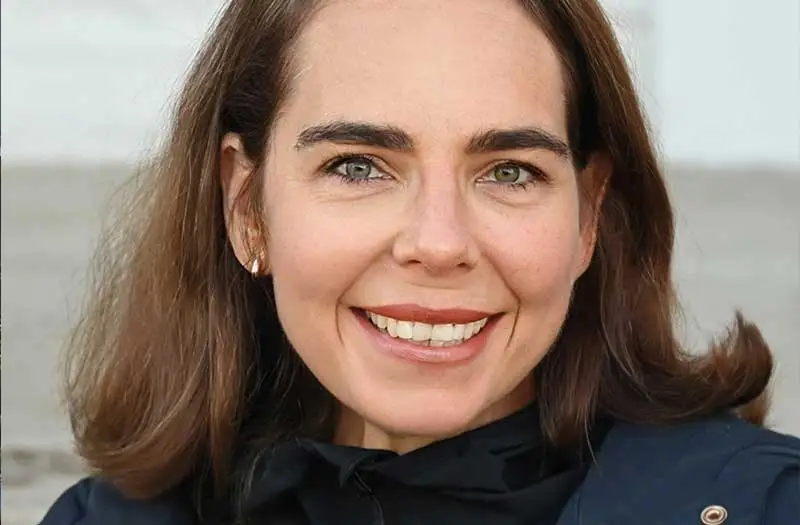Villa is excited to announce the appointment of Sarah le Grange in the new role of industry liaison and food value chain manager. In this new critical role, Sarah will focus on the identification of risks and opportunities across the entire crop value chain. Part of her responsibility will entail the development and evaluation of solutions to mitigate these risks and capitalise on the opportunities across all business units.
She is an industry expert on standards for Good Agricultural Practices (GAP) and Good Manufacturing Practices (GMP), and was responsible for the development of the Integrated Crop Management Assessment System (ICMAS), an industry one-stop GAP and GMP assessment tool, at Capespan. She was also responsible for the development of the ABSi website, a tool to streamline communication between food suppliers and the market, and more recently for the development of the Agri-Intel website, the crop protection industry’s comprehensive online database of all chemical, biological and natural crop protection and public health products registered for use in South Africa, including product labels, safety data sheets (SDSs), and information on maximum residue limits (MRLs) and withholding periods.
Sarah reports directly to Villa MD Marius Boshoff, and is based at the Paarl offices. After completing her studies in agriculture and journalism (MSc Agric in Horticulture; B Hon Journalism) at Stellenbosch University, she started her career with the deciduous fruit exporter Unifruco (later Capespan Exports) in 1994, first as journalist and editor of the deciduous fruit industry magazine, and later in technical-scientific roles in the Market Access and Technical departments. Here, she gained valuable experience in communication and market liaison with a range of different role players, including growers and grower organisations, agrochemical manufacturers, and various international retailers and other trading partners. In addition to the development of fruit quality prediction models, and digital auditing and training systems for growers and packers to ensure market compliance, she also led the development of the database and online platform of the Agri-Intel system, which is now owned and managed by CropLife SA.
On leaving Capespan Exports, she consulted in the crop protection and fruit industries on a variety of projects. These included participating in a programme driven by the UK retailer Marks & Spencer to develop strategies for reducing agrochemical residues on deciduous fruit and citrus from South Africa, with the ultimate goal of achieving zero residue levels on fresh produce, a project to determine residue breakdown rates of specific active ingredients in fruit. She also developed a risk assessment tool for the deciduous fruit industry to determine the likelihood of residue presence at harvest and the potential violation of EU maximum residue levels (MRLs).
During this time she also completed further studies in medical sciences, obtaining the degrees BSc Complementary Health Science and B Phytotherapy. Instead of pursuing a career in medicine, she joined ADAMA South Africa, the local division of ADAMA Ltd, an international supplier of crop protection products, where she headed the local regulatory and development team for the past 10 years. In this role she was actively involved in various CropLife SA working groups, and further strengthened her relationships with various crop protection and crop production organisations and international produce exporters.
Her particular interests are focused on promoting local and international market access, and supporting the development of environmentally friendly, integrative and sustainable crop production and crop protection solutions.
Sarah in her own words
As food value chain manager, I have to stay on top of the latest developments and potential future changes in specific aspects that could impact our business and the larger agricultural sector in which Villa operates. My focus is particularly on certain local and international regulatory and market-related changes and requirements that will necessitate us, as well as our clients and the growers, to change course or implement specific actions to ensure we comply and are therefore able to continue trading.
Examples of these requirements include local, international and market-related changes in the active ingredients allowed (or banned) for use and the maximum residue levels permitted, the impact of these changes on how we use agricultural remedies, as well as additional residue requirements from markets.
Furthermore, I also monitor other developments related to, for instance, climate, seasonal weather patterns, trends in agricultural practices and technologies, certain matters related to environmental and agricultural sustainability and resilience.
How does this contribute to Villa’s role in the industry?
Staying aware is not all that matters; the trickier part is for Villa to turn the knowledge into intelligence and take the appropriate actions to use what we know to our and our trading partners’ advantage.
It is crucial to always remember that everything is connected; therefore decisions and actions taken by one party in the food value chain can affect others downstream and sometimes even upstream as well.
We need to keep the bigger picture in mind: a challenge resolved, a risk mitigated or an opportunity seized in the right place at the right time could be vital to keep the channel flowing.
For this reason, liaising with stakeholders both inside and outside Villa is key. By acting as an internal consultant on these matters, I support the different functions in Villa – such as marketing, agronomy, regulatory, development and innovation (RD&I), as well as procurement, commercial and other operations – taking the necessary actions.
My role further includes building and maintaining strong relationships and identifying opportunities for mutually beneficial cooperation with major industry stakeholders, including grower bodies and big agribusinesses, research organisations, and some regulatory role players, such as CropLife SA.
What is your motto?
Grab the chance in the challenge. We need to be vigilant to identify the opportunities arising from changes in our environment, but also the undeniable risks and difficulties such changes often create for our business and that of our partners in the wider agricultural sector.

